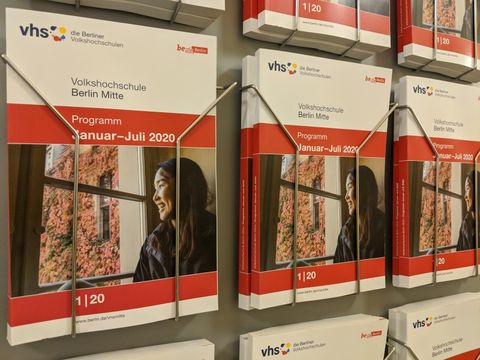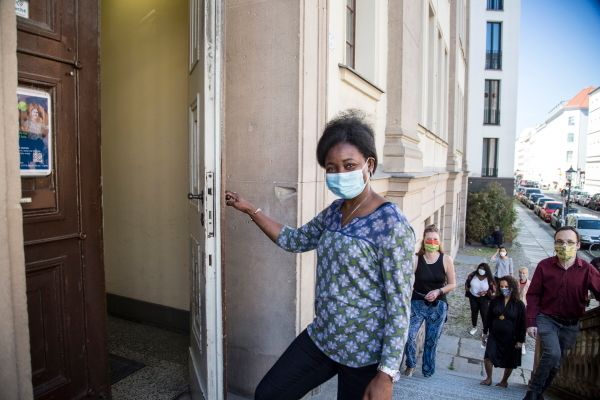You have been a German course instructor at the Volkshochschule for almost 10 years. I’ve looked you up: In over 250 courses you have taught about 3500 participants. In Turmstraße, Antonstraße and Linienstraße. How did this come about?
I wanted to become a lawyer or a pediatrician, then I had an encounter with a wonderful German teacher at the grammar school in Douala in Cameroon. She was so sensitive, gentle, natural and attentive. A radiant figure. And she awakened my love for German language and literature and the desire to become a teacher myself.
Teachers* have a role model function. We can move so much. A teacher must have this aura and the ability to make students smile. We teachers motivate our participants. My teacher at the time gave everything, so I gave everything. This is how I see the teacher function: to move people in such a way that they want to achieve something better. My son says I am impatient. In the classroom I am a completely different person. The world of work is important to me. I do everything with my heart and I don’t have half the stories. I am a perfectionist! (laughs)
How did it happen? I completed my bachelor and master studies in Yaoundé in the subject German literature “Modern German Literature”. Then I was in Berlin twice on a DAAD scholarship. In 1996 for my master’s thesis (“Maitrised’ allemand”) on Heinrich Böll at the Free University (FU) and in 2003 for my doctoral thesis at Humboldt University. Parallel to the Magister I graduated from the University of Education and received my recognition as a German teacher.
In the mornings Pedagogy, in the evenings FU and in between my son Wilfried was born. (laughs) My professors trembled before every exam, whether I would appear in the morning in the ninth month or turn off to the delivery room before. (of course she laughs here and the laughter doesn’t stop in this interview)
Working as a German teacher in Cameroon was easy. I had homogeneous groups, everyone spoke the same language of origin. But here at the adult education centre, I have developed my intercultural competence. Every course is different. Different people, a different atmosphere. I learned so much about other countries. Teaching is also a kind of further education. Not only professionally, but also to know people. The participants are my great source of strength. They are happy with my teaching and they show me that.



